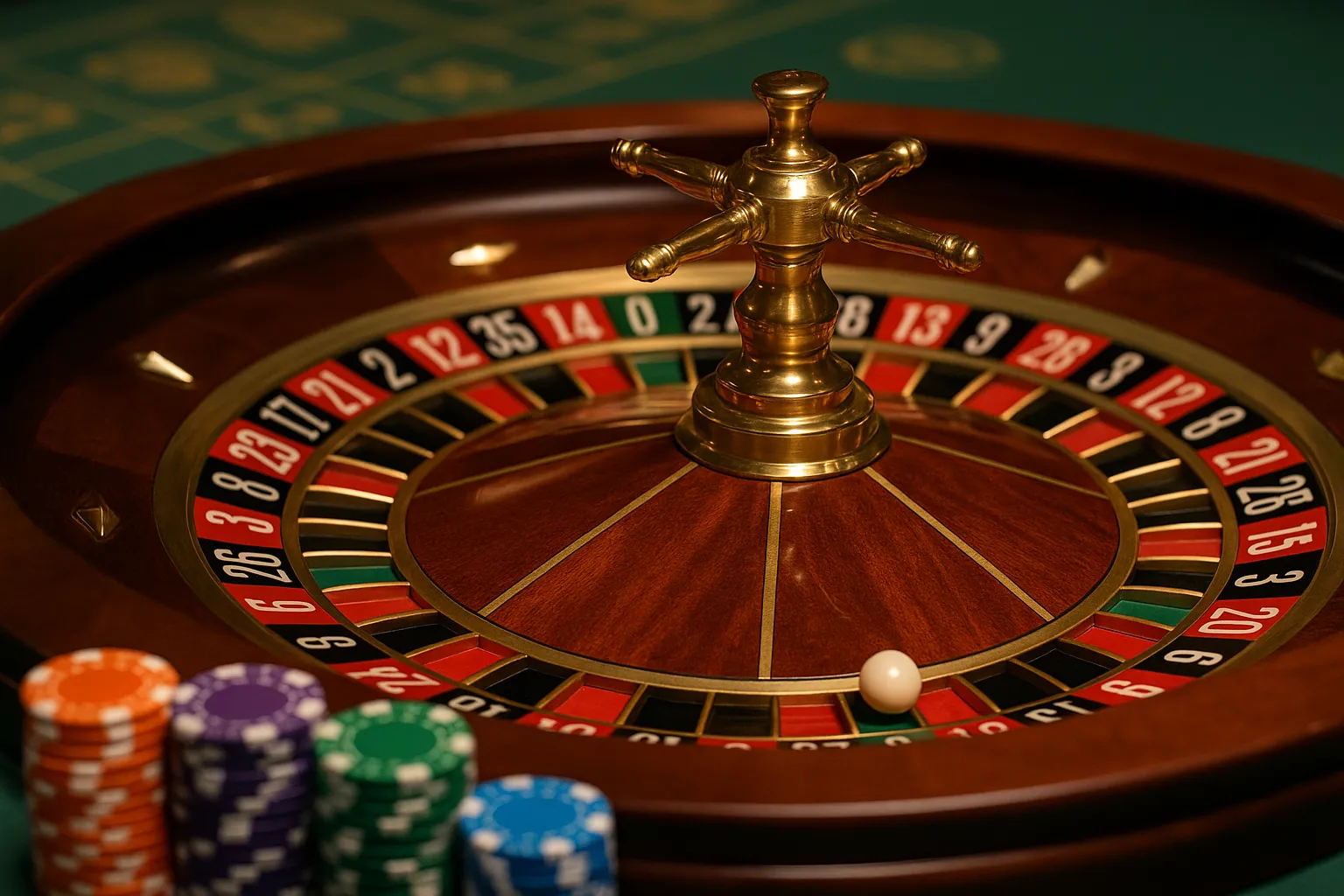Understanding the House Edge in Roulette
When you sit down at a roulette table—whether it’s a gleaming wheel in a brick-and-mortar casino or a live-dealer stream online—the house edge is the silent force working against your bankroll. In simple terms, the house edge is the percentage of each bet that the casino expects to keep over the long run. For European roulette, that figure is 2.70%, thanks to the single zero pocket. In American roulette, the double zero raises the edge to about 5.26%. Understanding this built-in advantage is the first step in reducing its impact on your play.
The mathematics behind the house edge might sound intimidating, but it just means that for every £100 you wager on European roulette, the casino expects to keep £2.70 over time. That doesn’t mean you can’t have winning sessions—it simply means that in a very large number of spins, the casino’s profit will average out to roughly that percentage. Armed with this knowledge, you can make smarter choices about which bets to place, which roulette variant to choose, and how to manage your time and money at the table.
Choosing the Optimal Roulette Variant
One of the most effective ways to shrink the house edge is by selecting the right roulette game. European roulette is the go-to option for most players, because that single zero keeps the edge at a relatively modest 2.70%. If you have access to French roulette, you can do even better. French tables often offer the “La Partage” or “En Prison” rules—which return half of your even-money bets if the ball falls on zero—effectively halving the edge to just 1.35% when making outside wagers.
For those seeking wider options, exploring offerings at UK casinos not on GamStop reveals a variety of French and European roulette games with favorable rules that aren’t always available at the main UK-licensed sites. You’ll find tables that allow La Partage even on low-stakes bets, as well as unique side bets that offer respectable RTP percentages. Always check the game rules before betting: a single zero with La Partage is your best friend when it comes to beating the house edge.
Adapting Your Betting Strategy
Once you’ve chosen a low-edge variant, your next task is to refine how much and where you place your bets. One common misconception is that complex systems like Martingale or Fibonacci can overcome the house edge. In reality, no betting progression can change the underlying mathematics. What these systems can do, however, is help you organize your play and manage your wins and losses in a more structured way.
For instance, I often start my session with small, steady even-money wagers—red/black, odd/even, high/low—to build my confidence and look for any table biases or dealer patterns. If I notice the wheel consistently favoring certain sections, I might introduce inside bets or section bets, always aware that the house edge on those remains 2.70% (or higher in American roulette). Rather than chasing long losing streaks, I set a cap on the number of progression steps I’ll make, then reset to my base wager. This disciplined approach keeps me from overextending my bankroll while still enjoying a measured thrill.
Managing Your Bankroll and Session Length
Nothing chips away at your advantage more quickly than reckless bankroll management. The best players I know—whether in Monte Carlo or on live-dealer streams—treat their roulette sessions like any other strategic pursuit. They decide in advance how much they’re prepared to lose and how much they’d be satisfied winning. Then they allocate that budget across a realistic number of spins, often using a timer to ensure they don’t stay at the table for fatigue or frustration.
Over the years, I’ve found that capping my session at ninety minutes max and limiting my total wagers to four times my planned session budget keeps my losses in check. When I hit my win target—say, 20% above my starting bank—I lock in profits by reducing my bet size or quitting altogether. Equally important is a loss limit. If I lose 50% of my initial stake, I walk away and return another day. This self-discipline turns the house edge into a predictable cost of entertainment, rather than a gamble I’m emotionally chasing.
Leveraging Casino Bonuses and Promotions
Online casinos are eager to attract new players, and bonuses can provide extra value if you use them wisely. Welcome offers often include deposit match bonuses and free spins. While wagering requirements can sometimes feel onerous, choosing a casino with fair terms can tilt the balance in your favor. Always read the fine print: look for low rollover requirements (ideally 20× or less) and check whether roulette spins contribute to wagering. Many operators limit roulette contributions to 10% or lower, so calculate the real bonus value before committing to a site.
A practical example: Last month, I claimed a £100 deposit match with 30 free spins at a site that applied a 15× rollover with 20% roulette contribution. That meant I only needed to wager £500 in roulette bets to clear the bonus, and each free spin played European roulette with La Partage rules. I walked away pocketing £60 in bonus-derived profits after meeting the requirements, effectively reducing the house edge on those spins by leveraging the extra funds.
Practice Makes Perfect: Free and Low-Stakes Play
Before staking real money, take advantage of free play modes and micro-stakes tables to master wheel dynamics and timing. Many online casinos—even those outside the GamStop network—offer instant-play demo versions of their roulette games. Watching the ball’s speed, how the dealer releases it, and how the wheel settles can reveal subtle biases in electronic RNG wheels or live-dealer setups.
In one session on a low-stakes French roulette table, I observed that the ball favored the sectors around 17–19 due to a slight tilt. By placing small sector bets, I turned what would have been random losses into modest but consistent gains. While this won’t guarantee success on perfectly balanced wheels, developing an eye for patterns and practicing betting discipline at minimal cost will help you maximize your real-money sessions.
Final Thoughts on Reducing the House Edge
Reducing the house edge in roulette isn’t about finding secret systems or bending the rules—it’s about informed choices, disciplined play, and smart use of bonuses. By selecting European or French variants with favorable rules, adopting structured bet management, setting firm bankroll limits, and leveraging promotions, you can turn the odds closer to your favor. Remember, the goal is enjoyable, sustainable play rather than chasing mirages of guaranteed wins.
Roulette remains, at its core, a game of chance. But with a strategic mindset and respect for the game’s mathematics, you can make the house edge feel like a manageable cost of entertainment—one that, with patience and practice, you can significantly reduce.



